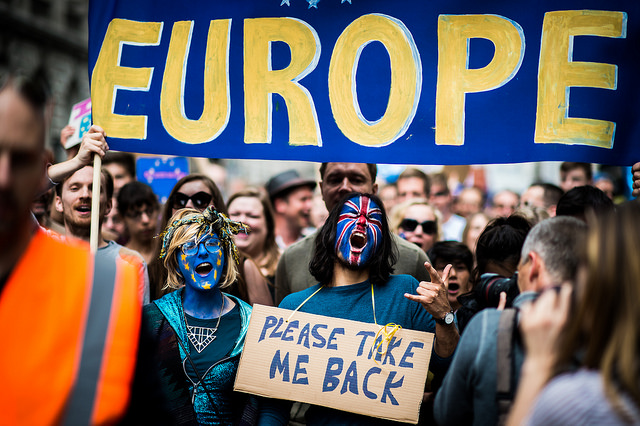
With the year coming to an end and things winding down for the summer break in Australia, it’s worth looking ahead and mentally preparing for a big year. Here’s my take on the events that will define 2019 in Europe and where the next strategic challenges may arise.
The early months of 2019 will be dominated by Brexit. The UK is scheduled to leave the European Union at 11 pm GMT on 29 March 2019. The past few weeks have been dominated by emotional debates on the agreement’s Irish ‘backstop’ in the House of Commons, in the EU’s institutions and across European capitals.
Amid the drama, one thing is certain: if Prime Minister Theresa May can’t get the Brexit agreement through parliament come the new year, the chances of a coordinated Brexit will dwindle. Brussels has said that while it may accept clarifications of the deal, it will not renegotiate the agreement. The UK is now busy preparing for a ‘no-deal’ scenario, which would see it say goodbye without any arrangements for future trading or general relations with the EU in place.
The next steps remain unclear. More and more Brits are calling for a second referendum, or ‘people’s vote’. If that were to happen, the question would more likely be about the negotiated deal than about ‘leave’ versus ‘remain’. The European Court of Justice ruled that Article 50 (invoked by a member state that wishes to leave the EU) can be revoked, which would mean no Brexit at all. While that would be a win for the European family, it would be a blow to British democracy and a waste of the millions of pounds and euros spent over the past two years trying to figure out how to implement Brexit. Uncertainty is rising and the EU, the UK and especially EU citizens living in Britain are running out of time.
Shortly after the Brexit divorce date in March, the EU will face a further challenge: the next
European Parliament elections are scheduled for 23–26 May. The last couple of years have seen an increase in support for nationalist and far-right movements and political parties during national elections across Europe, and a large number of their members have entered local, regional and national parliaments. If this trend continues across Europe level, it could have a significant impact on the composition of the European Parliament.
Although many undervalue the parliament’s influence, its members do have a significant say and have the power to shape European politics for the next five years. The next long-term EU budget—for 2021–2027—is set to be adopted by the end of next year and requires parliamentary approval. Dominance of Eurosceptic and right-wing values could be fatal for the EU’s legislative and budgetary agendas, particularly when common challenges such as migration continue to demand joint approaches.
More than 20 European nations will head to the polls in 2019 for local and national elections. The significance of these elections in shaping the continent’s future shouldn’t be underestimated, especially at a time when trust and support for democracy and liberal institutions is suffering.
A region to keep a close eye on in that regard is central Eastern Europe. Not only has illiberalism been on the rise in Poland, Czech Republic, Slovakia and Hungary, but all four face elections in the next couple of years. (On that note,
this publication by the German Marshall Fund of the United States and Visegrad Insight discusses five scenarios for the region’s future.) The EU has taken legal steps and may institute sanctions against both Poland and Hungary following their governments’ attacks on their judiciaries and the rule of law. However, the Polish government just took steps towards a truce with Brussels by revoking prior changes to the court legislation.
Also worth watching will be the parliamentary elections in Estonia, as the country has a significant Russian minority and has been subject to Kremlin-driven cyber operations and interference before.
In Ukraine, we’re likely to continue to see conflict and potentially further escalation of the war there, which is set to enter its fifth year. It remains to be seen if the Kremlin will continue the behaviour it demonstrated in the Black Sea in November, when the Russian navy shot at and seized Ukrainian naval vessels and arrested their crews in the Kerch Strait. The Ukrainian presidential and parliamentary elections are scheduled for March and the results will show how Ukrainians feel more than five years after the Maidan protests in Kyiv, and who they choose will set the country on its future path.
It’s unlikely that the Russian government would opt for an open invasion and full-scale war in Ukraine with the full involvement of Russian forces, simply because it couldn’t support such an action economically and, more importantly, the Kremlin doesn’t have an interest in waging a full-scale war if it can achieve its aims through lower-level measures. Those aims will continue to dominate debates within NATO and the EU on solidarity and approaches to security. The wavering US approach to common defence and a push from countries like France for greater European efforts on defence will likely spark further debate in the next 12 months.
While this outlook is rather bleak, 2019 also marks the 30-year anniversary of the fall of the Berlin Wall and the end of the Cold War. The absence of a major European war in the decades since is certainly something to acknowledge and celebrate.
 Print This Post
Print This Post